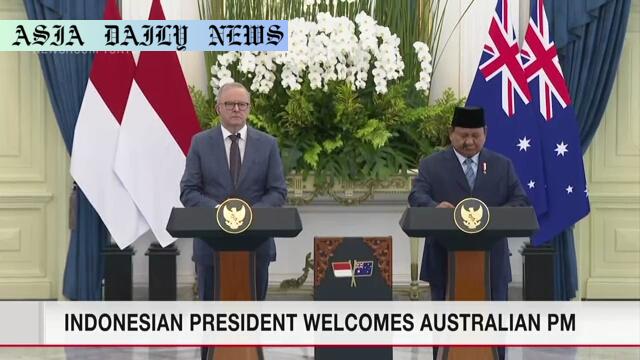Defense Cooperation: Strengthening Indonesia-Australia security relations remains pivotal. Albanese aims to elevate the partnership further.

Strengthening Bilateral Defense Partnerships
The recent meeting between Australian Prime Minister Anthony Albanese and Indonesian President Prabowo Subianto in Jakarta marked a pivotal moment in diplomatic relations between the two neighboring countries. The strengthening of defense and security cooperation was a primary focus, and both leaders expressed optimism about deepening their partnership. Albanese, fresh off his inauguration, underscored the strategic importance of Indonesia to Australia’s foreign policy. This mutual alignment of defense priorities underscores an evolving regional framework.
The Role of the Defense Cooperation Agreement
Albanese highlighted the significance of the Defense Cooperation Agreement signed last year when Prabowo was serving as Indonesia’s Defense Minister. Describing it as the “most significant step in three decades,” he reiterated his commitment to building upon the progress made. Prabowo, aiming to enhance his nation’s defense capacities, echoed similar sentiments. The reaffirmation of last year’s agreement sets the stage for further bilateral collaboration in areas such as military exercises, technology sharing, and intelligence assessments.
Indonesia’s Policy of Non-Alignment
An interesting dimension of this budding relationship is Indonesia’s policy of non-alignment. While Jakarta values its agreements with Australia, it continues to adopt a neutral stance in the global power dynamic. Indonesia’s joint naval drills with Russia last year and subsequent intelligence reports alleging Russian interest in military bases on Indonesian soil have been matters of concern for Canberra. However, Indonesia has consistently denied these reports, reiterating its commitment to balanced foreign relations.
Looking Ahead
The evolving defense relationship between Indonesia and Australia represents both challenges and opportunities. Strengthening bilateral security partnerships while respecting Indonesia’s non-alignment policy requires careful diplomacy. Nevertheless, both nations appear committed to long-term trust and collaboration. As Albanese aptly stated, the renewed cooperation is not a final step but a significant stride towards greater strategic integration.
Commentary
Insights into the Strategic Partnership
The meeting between Prime Minister Anthony Albanese and President Prabowo Subianto stands out as a testament to the enduring importance of regional alliances. It is promising to see leaders from both nations recognizing the pivotal role that defense partnerships play in maintaining regional peace and stability. Albania’s visit to Jakarta as his first foreign policy move after re-election highlights the prioritization of Indonesia within Australia’s strategic framework.
Navigating Non-Alignment and Strategic Alignments
Indonesia’s policy of non-alignment adds a sophisticated dimension to its partnership with Australia. It raises questions about how far defense cooperation can be extended without undermining this principle. Historical events, such as Indonesia’s naval exercises with Russia, serve as reminders of its commitment to neutrality. Yet, this neutrality challenges collaborations as Australia has voiced concerns over potential Russian military presence in Indonesia. The delicate balance between non-alignment and cooperation must be managed wisely.
Paving the Way Forward
As these two nations work together to strengthen their military and security ties, they set an example for broader regional collaboration. The relationship builds upon a legacy of mutual interests and highlights the potential of partnerships rooted in trust and strategic foresight. However, continued dialogue and transparency will be key to addressing evolving challenges that may arise in the Indo-Pacific.


